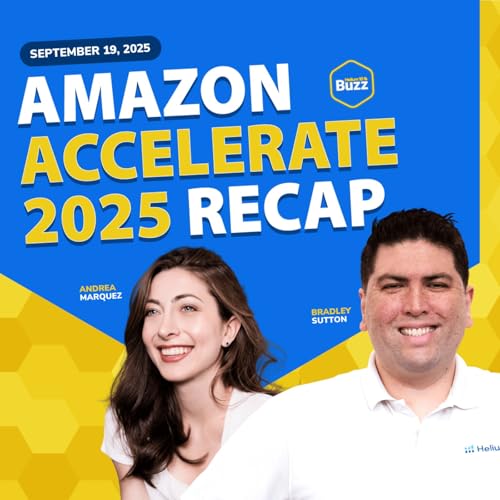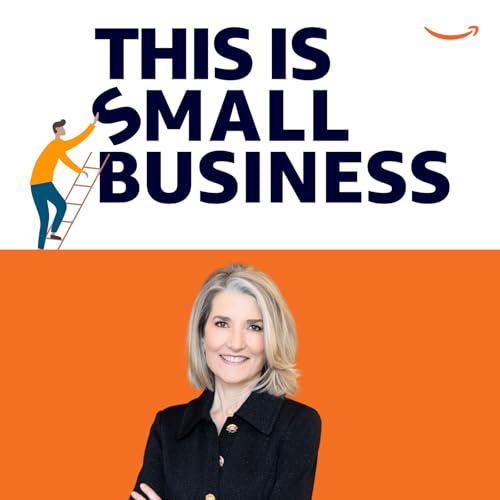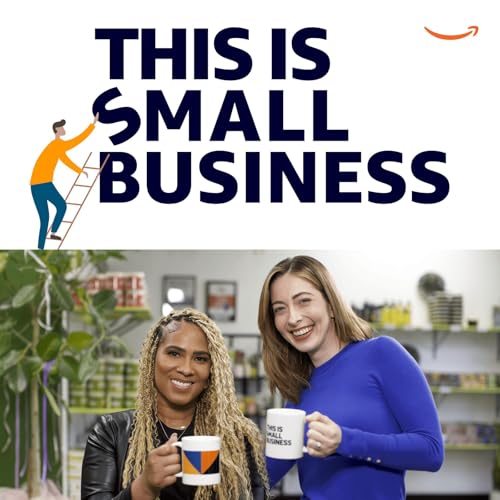What if failure wasn’t the end but the beginning? Dr. Amy Edmondson, Harvard Business School professor and author of The Fearless Organization and The Right Kind of Wrong, says that failure is not proof you’re falling behind – it’s proof you’ve taken a risk. And if you set it up right, it can actually be the key to progress.
In this season finale of This is Small Business, host Andrea Marquez sits down with Amy to explore why our relationship with failure shapes how far we can go as entrepreneurs. From the science of “psychological safety” to the three types of failure – basic, complex, and intelligent – Amy offers a crash course on how to fail the right way, what to learn from it, and why the best entrepreneurs are the ones who stumble, recover, and keep moving forward.
If you’ve ever worried about making mistakes or held yourself back from starting and taking risks because of the fear of failing, this conversation will help you reframe failure as momentum, not defeat.
Got a bold leap of your own? Share it with us in an Apple Podcasts review, Spotify comment, or email us at thisissmallbusiness@amazon.com – you might hear it in a future episode.
In this episode, you’ll hear:
(1:45) Why do conversations and team dynamics matter so much for success? Amy explains how the quality of everyday interactions shapes an organization’s performance.
(3:43) What is psychological safety in the workplace and why should entrepreneurs care about it? Amy explains why people need to feel safe to speak up, ask questions, and admit mistakes in order for teams to learn and innovate.
(5:40) How do you actually create psychological safety on your team? Amy shares a simple three-step framework: set the stage, proactively invite voices in, and respond with appreciation.
(9:03) What’s the real difference between a mistake and a failure? Amy breaks down her three types of failure – basic, complex, and intelligent – and shows how intelligent failures are actually discoveries that fuel growth and innovation.
(12:57) Can failure actually lead to breakthrough ideas? Amy tells the story of her first big research failure and how it unexpectedly led to her pioneering work on psychological safety.
(15:49) How do you make failure safe without encouraging the wrong kind of failure? Amy explains why innovation requires failure – but only in the right contexts – and shares three dimensions every entrepreneur should check first: human safety, economic cost, and reputational risk.
(18:34) How do you know if a failure is one you can come back from? Amy shares her four criteria for an “intelligent failure” that could help you improve without causing lasting damage.
(20:19) Do successful people fail more often than the rest of us? Amy explains why the best in any field – from science to sports – tend to have more failures, not fewer.
(22:41) How can entrepreneurs stop being afraid of failure? Amy explains why nobody’s in the “perfection business” and how reframing setbacks as “catch and correct” moments can build resilience.
 Oct 28 20257 m
Oct 28 20257 m Sep 23 202534 m
Sep 23 202534 m 27 m
27 m 25 m
25 m Sep 9 202526 m
Sep 9 202526 m 23 m
23 m 22 m
22 m 34 m
34 m

